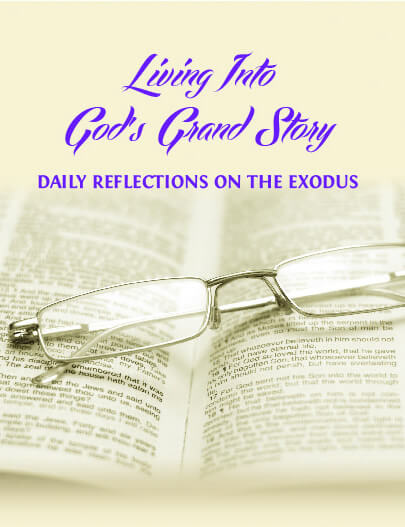
Exodus 1:8-15
The Exodus story is a classic narrative, with a beginning, a middle, and an end. There is a problem, a struggle, and a resolution; or, there is Egypt, the Wilderness, and the Promised Land. The Apostle Paul says that we are to read the Exodus story as a “type” of our own spiritual journey. He says that the things which “happened to them serve as an example, and they were written down to instruct us” (I Corinthians 10:11). In these daily devotionals we are immersing ourselves into the Exodus story so that we might better live into God’s story of redemption and grace.
It is significant for our understanding of the Exodus to know that in the Biblical text the word for “Egypt” is Mitzraim, which means “double straits”. Thus, Egypt is a place of straitjacket existence, hemmed in by difficulty and trouble. Today’s text is only one of several that speak of life in Egypt as oppressive, ruthless, and harsh. Other texts portray Egypt as a “house of slavery” (Exodus 13:3, 14; 20:3). To live in Egypt is also to be without any future, as the Egyptians are beginning to practice male infanticide on the Israelites. We could say that Egypt is the human condition of being in “double straits”: bondage without any hope of a future.
But there is a way out! The Exodus! The word Exodus (Greek: exodus), means, literally, “a departure”, or, “a way out”. Jesus said: “I am the way (odos), the truth, and the life” (John 14:6). Jesus’ first disciples called themselves followers of “the Way” (Acts 22:4). In Jesus, our Passover Lamb, God provides “a way out” of the hopeless, troubled straits of Egypt. Jesus will take us to the Promised Land!
REFLECTION
- Take some time to prayerfully reflect on the Apostle Paul’s description of Christ taking us from bondage to new life:
You were dead through the trespasses and sins in which you once lived, following the course of this world, following the ruler of the power of the air, the spirit that is now at work among those who are disobedient. All of us once lived among them in the passions of our flesh, following the desires of flesh and senses, and we were by nature children of wrath, like everyone else. But God, who is rich in mercy, out of the great love with which he loved us even when we were dead through our trespasses, made us alive together with Christ – by grace you have been saved – and raised us up with him and seated us with him in the heavenly places in Christ Jesus. (Ephesians 2:1-6)
- Reflect on the words of the late Russian Orthodox churchman Metropolitan Anthony of Sourozh:
Like the Jews in Egypt we have spent our lives as slaves; we are not yet in our souls, in our wills, in our selves, real free men… So the first situation with which Exodus begins, and we begin, is the discovery of slavery and that it cannot be resolved by rebellion or flight” (Living Prayer).



